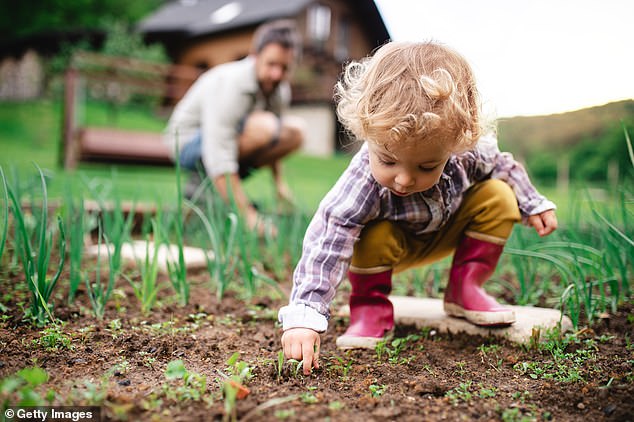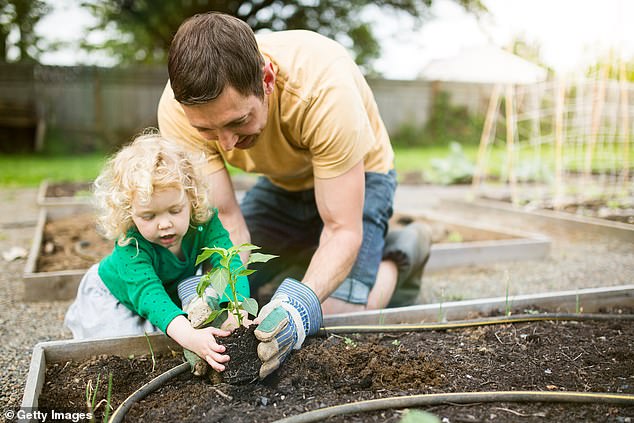Government ministers urge children to learn science by letting them eat ice cream and plant vegetables
Experts have told ministers that children should learn about science by eating popsicles and planting vegetables.
Four major scientific institutions are lobbying the government to include fun, real-world experiences in the curriculum.
Other suggestions for students ages three to eleven include playing with shadows, digging in the dirt, kneading bread dough, recycling, and playing musical instruments.
They hope to influence the review of Labour’s new curriculum, led by Professor Becky Francis, which will report next year.
The Royal Society of Chemistry, the Institute of Physics, the Royal Society of Biology and the Association for Science Education state that children should be able to relate concepts to real life.
Children should learn about science by eating ice cream and planting vegetables, experts have told ministers

Other suggestions for students aged three to 11 include playing with shadows, digging in the dirt, kneading bread dough, recycling and playing musical instruments (stock image)

The Royal Society of Chemistry, the Institute of Physics, the Royal Society of Biology and the Association for Science Education state that children should be able to relate concepts to real life (stock image)
People without a garden or the opportunity to participate in a wide range of activities are “at a distinct disadvantage,” they said.
Aylin Ozkan, policy expert at the Royal Society of Chemistry, said: ‘One of the recommendations for chemistry is that all children should start to understand how temperature works and how heating and cooling can change things at the age of 11.
“What’s better than a popsicle to explain this to a teacher?”
Charles Tracy, senior adviser at the Institute of Physics, said: ‘Many children enjoy making noise, but by using this in the classroom they can learn the basics of concepts such as pitch and volume.’
Lauren McLeod, head of education policy at the Royal Society of Biology, said: ‘By celebrating green spaces, growing vegetables in the classroom and visiting the local garden centre, children can experience the life cycles of living things and be involved in making healthy and sustainable choices.
‘Not all children have access to a garden or schoolyard.’
The organisations produced a report saying that revising the curriculum was an “equality issue” and that offering classroom experiences would help children “gather evidence for their ideas”.
The recommendations from the curriculum revision will be implemented as early as September 2025.
Yesterday, teachers unions said primary schools are already making effective use of real-world experiences. The main issue is that there is enough space in the timetable for science, alongside other subjects.
